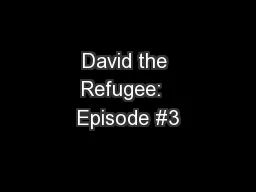PDF-nfused but Sporadically Hopeful By David Albright and Jacqueline Shire
Author : min-jolicoeur | Published Date : 2016-08-06
The Glass is Half Full
Presentation Embed Code
Download Presentation
Download Presentation The PPT/PDF document "nfused but Sporadically Hopeful By David..." is the property of its rightful owner. Permission is granted to download and print the materials on this website for personal, non-commercial use only, and to display it on your personal computer provided you do not modify the materials and that you retain all copyright notices contained in the materials. By downloading content from our website, you accept the terms of this agreement.
nfused but Sporadically Hopeful By David Albright and Jacqueline Shire: Transcript
Download Rules Of Document
"nfused but Sporadically Hopeful By David Albright and Jacqueline Shire"The content belongs to its owner. You may download and print it for personal use, without modification, and keep all copyright notices. By downloading, you agree to these terms.
Related Documents














